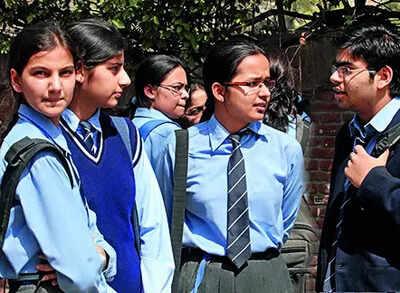ARTICLE AD BOX

The Central Board of Secondary Education (CBSE) has announced major reforms for the Class 10 and Class 12 examinations in 2026, signaling a transformative shift in India’s school education system.
In line with the National Education Policy (NEP) 2020, the board is moving away from rote memorization towards competency-based learning, analytical reasoning, and holistic evaluation. Schools nationwide now face the dual challenge of adapting their teaching methods and upgrading institutional systems to comply with the new standards.At the heart of CBSE 2026 is a focus on critical thinking and practical application.
Traditional lecture-heavy classrooms are no longer sufficient. Teachers must now design lessons that encourage discussion, problem-solving, and experiential learning. Students will be assessed not just on their ability to recall facts but on their capacity to understand, analyze, and apply knowledge in real-world contexts.
Schools must create environments that nurture inquiry, collaboration, and analytical reasoning across all subjects.
Internal assessment gains weightage
One of the most significant changes is the increased weight of internal assessments, which now contribute substantially to final marks. Schools are required to implement structured, meaningful projects, assignments, and periodic evaluations. Every assessment must be well-documented, transparent, and aligned with competency-based learning objectives. This shift ensures that students’ overall development and consistent effort throughout the year are rewarded, rather than relying solely on final examinations.
Operational compliance and attendance rules
CBSE 2026 also tightens operational requirements. Students must maintain a minimum 75% attendance to be eligible for board examinations. Examination halls must now be equipped with CCTV cameras, ensuring security and integrity during exams. Schools are also expected to accommodate students participating in national or international sports events, Olympiads, or other official commitments, offering flexible exam schedules without compromising fairness.
Infrastructure and teacher training imperatives
Infrastructure and faculty preparedness are now critical factors. Schools must upgrade classrooms, implement digital learning tools, and provide continuous teacher training to align with competency-based pedagogy. Faculty must be trained not only in new teaching methodologies but also in assessment strategies that reflect analytical and application-based evaluation.
Special considerations and inclusive education
CBSE 2026 emphasizes inclusivity. Schools are required to support students with special needs or those balancing rigorous extracurricular schedules.
Flexible scheduling, proper documentation, and robust administrative planning will ensure that all students receive equitable opportunities to succeed.
A test for schools and students alike
The CBSE 2026 reforms are not just an update in examination policy, they represent a systemic overhaul of teaching, evaluation, and school management. Institutions that embrace these changes will cultivate critical thinkers, problem-solvers, and adaptable learners ready for the challenges of higher education and modern careers. Those who delay adaptation risk lagging behind in both academic performance and institutional credibility.

 3 hours ago
1
3 hours ago
1









 English (US) ·
English (US) ·